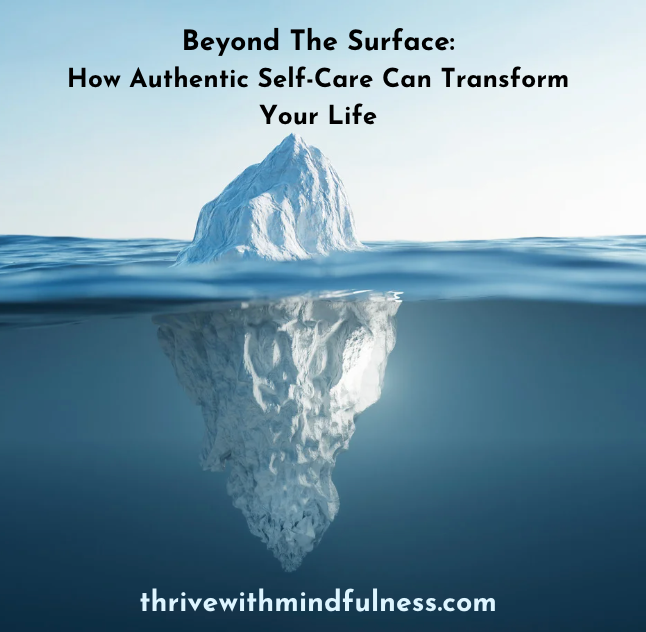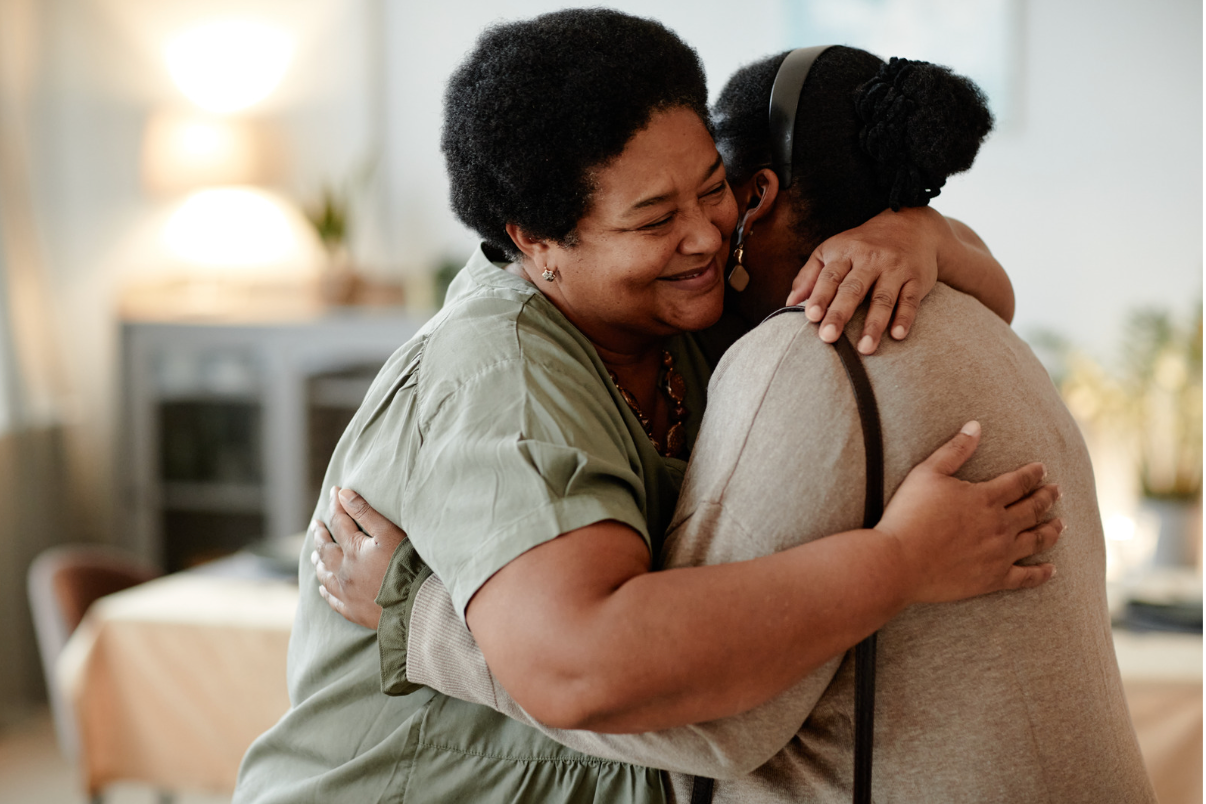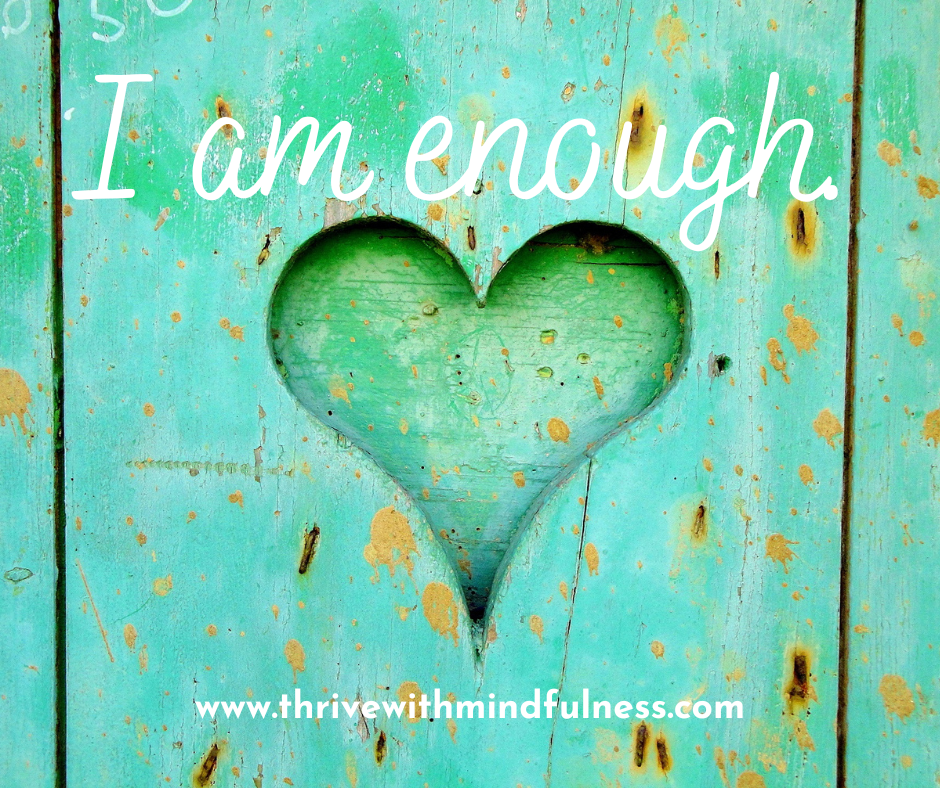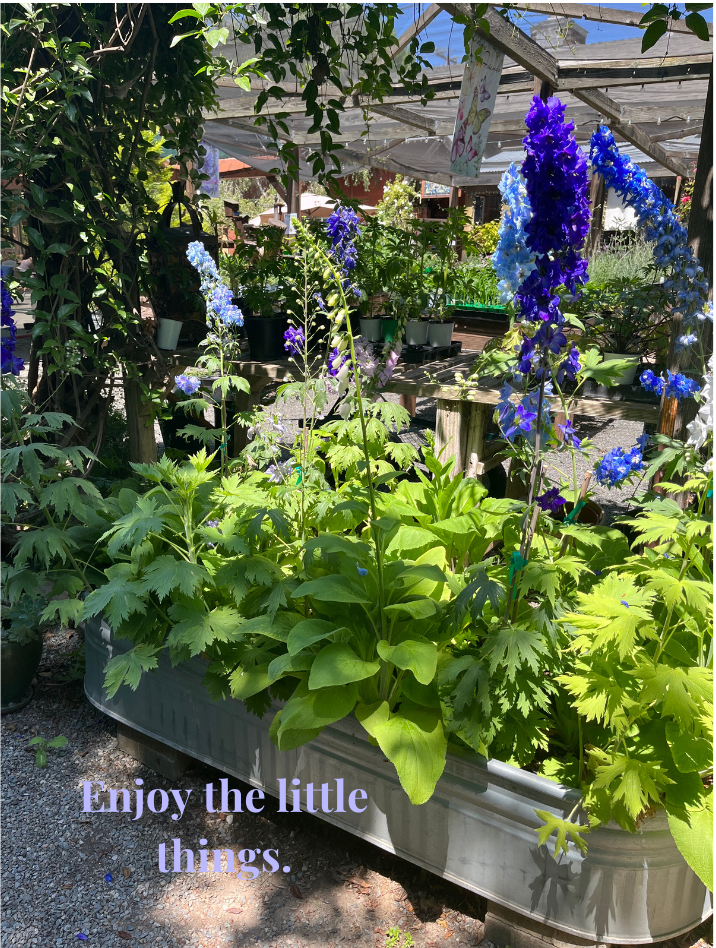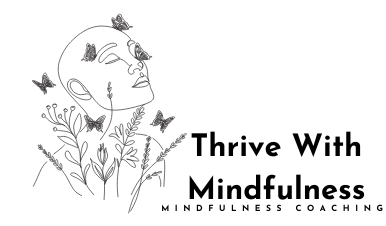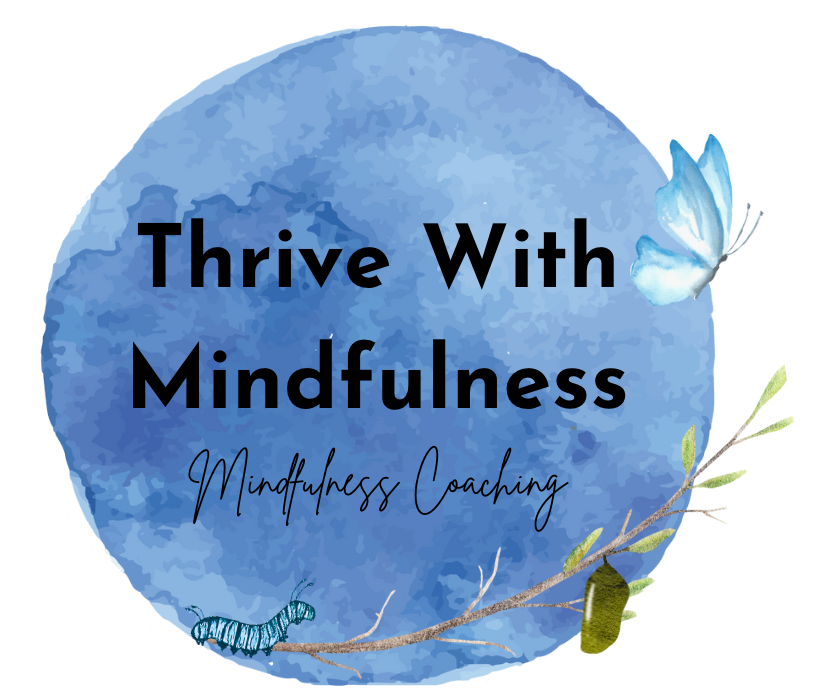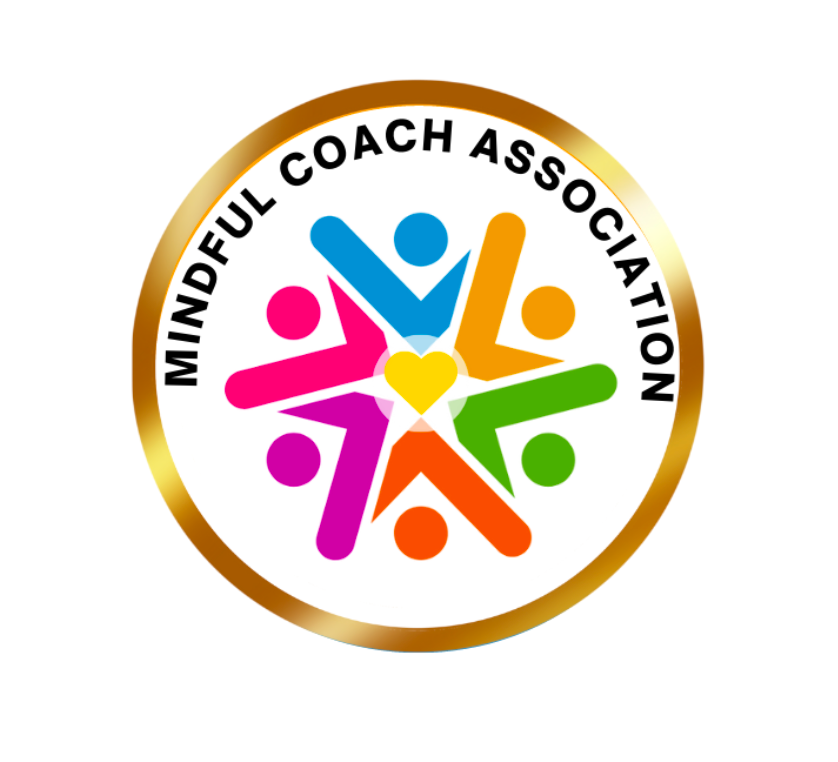Empowering Parents: A Mindful Approach to Children's Emotional Regulation

In today's fast-paced world, parenting comes with its unique set of challenges. For millennial parents, juggling work, family, and personal well-being can often feel overwhelming. But here's the good news: fostering emotional regulation in your children can be a transformative journey, not just for them but for you as well.
Navigating Meltdowns and Tantrums
Helping kids learn self-regulation is essential. We've all been there – those moments when they have meltdowns, tantrums, or refuse to listen. It's natural to feel disconnected during these challenging times, experiencing frustration, sadness, or anger.
It's important to understand that meltdowns and tantrums are a normal part of child development. These outbursts often occur because young children have limited language skills and struggle to express their emotions effectively. As parents, recognizing this natural phase can help us respond with empathy and patience.
Start with Self-Care
The first step in helping your child regulate their emotions is to take care of yourself. By dedicating just 30-60 seconds to take a few deep breaths, you create space to respond with clarity rather than react emotionally.
Taking those 30-60 seconds for yourself not only helps you respond calmly but also sets a powerful example for your child. Children learn a great deal from observing their parents' behavior. By demonstrating self-regulation, you're teaching them a valuable life skill.
Embracing Connection and Communication
Now, you're ready to connect with your child. Listen actively to understand their perspective, validate their feelings, and empower them to make choices that promote calmness and resolution.
Studies have shown that children who have open and supportive communication with their parents tend to have better emotional regulation skills. By maintaining a strong, loving connection with your child, you're providing them with a secure emotional base to navigate life's challenges.
Silent Actions Speak Louder
Sometimes, words aren't necessary. Learn how modeling behaviors like deep breathing, offering comfort, or engaging in calming activities can encourage self-regulation in your child.
Besides deep breathing and comfort, consider introducing mindfulness practices to your child. Mindfulness has been scientifically proven to enhance emotional regulation in both children and adults. Simple mindfulness exercises, such as mindful breathing or guided visualizations, can be incredibly beneficial.
The Power of Play
Explore movement games that shift focus from triggers to engaging activities, promoting emotional balance. The 'shake/freeze game' is a fantastic example. Shake your body and hands for about 30 seconds, freeze, and notice all the sensations you feel in your body. Notice how your body sensations change over the next minute.
Play is a child's primary language. Engaging in play with your child not only strengthens your bond but also offers a safe space for them to express their emotions. Play allows children to explore and process their feelings in a non-threatening way, promoting emotional regulation.
Creating a Calm Space
Ultimately, your goal is to establish a nonjudgmental, safe space for both you and your child to calm down in, fostering emotional growth.
Incorporate sensory tools like stress balls, fidget toys, or calming sensory jars into your calm space. These tools can be especially helpful for children who have sensory sensitivities or struggle with emotional regulation.
Conclusion
The journey to nurturing emotional regulation in your child is one of the most meaningful and lasting gifts you can offer as a parent. If you're eager for more insights and practical tips on helping your child develop these essential skills, explore our free resource by clicking the link below. Together, let's create harmonious family life one mindful step at a time.
Remember, the journey of nurturing emotional regulation in your child is ongoing. Be patient with yourself and your child, as these skills take time to develop fully. Seeking support and guidance from professionals or parenting communities can be invaluable resources on this journey.
Need Support?
I offer a FREE mini-course called, 'Crafting The Family You Want', which is a great place to start. It offers a general explanation of how mindfulness and neuroplasticity work hand in hand to help you slowly make changes in how you regulate your own emotions, and this will help you to model emotional regulation strategies to your child.
If this resonates with you, I invite you to sign up for the mini-course! It's self-paced, online, and will be delivered directly to your inbox once you've enrolled.
With love,
Traci
PS- Need a little more information about the mini-course first? The picture on the right has more details!

Hi I'm Traci Mausolf,
I invite parents, and those who work with them, to sign up for my free mini-course, Crafting The Family You Want. This mini-course is specifically tailored for parents who are seeking to bridge the gap between their current parenting experience and their desired vision. Whether you are facing challenges in communication, struggling with misalignments in family dynamics, or simply seeking to enhance the overall well-being of your family, this workshop is designed to provide you with practical strategies and tools for positive change.
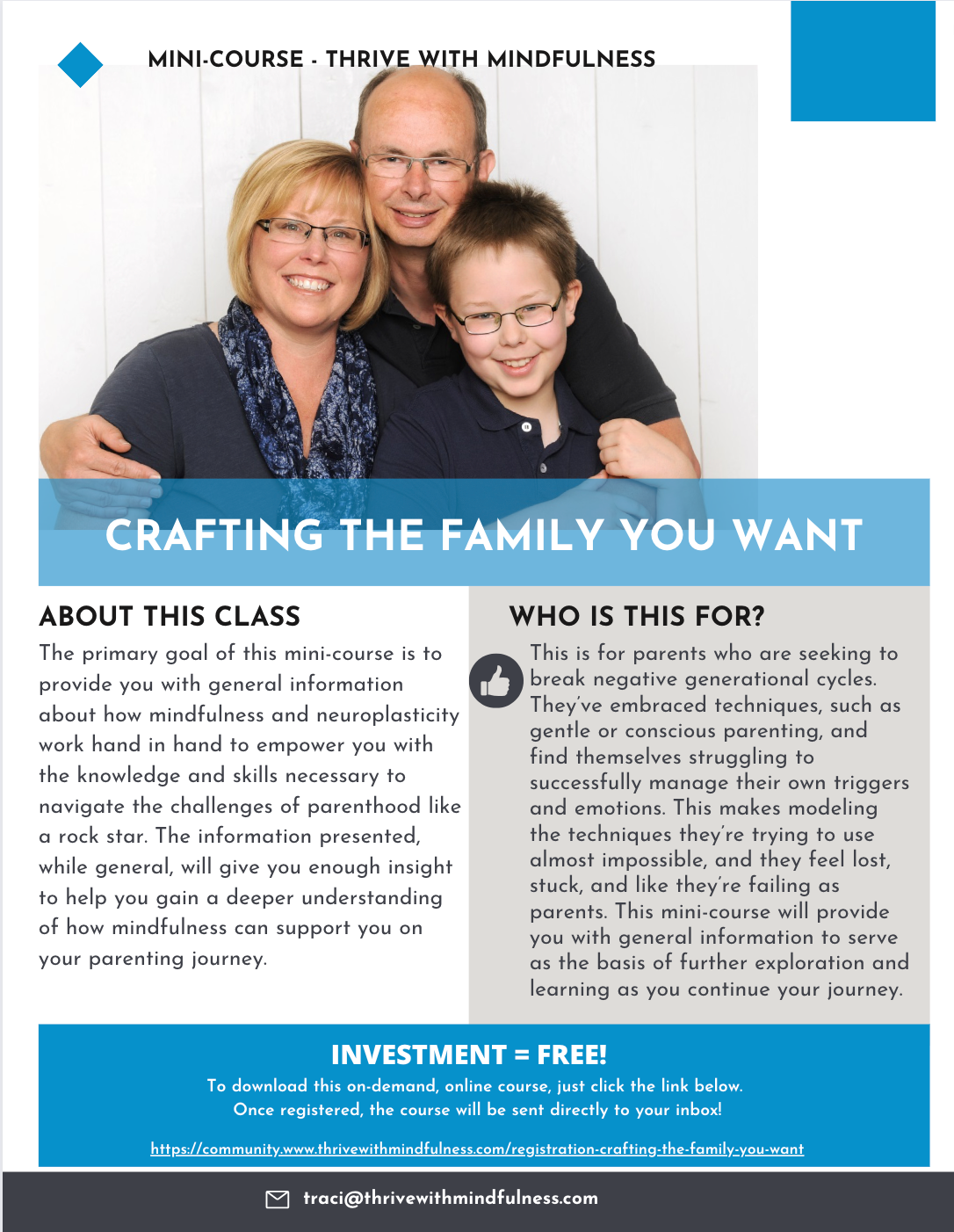
Share this post

